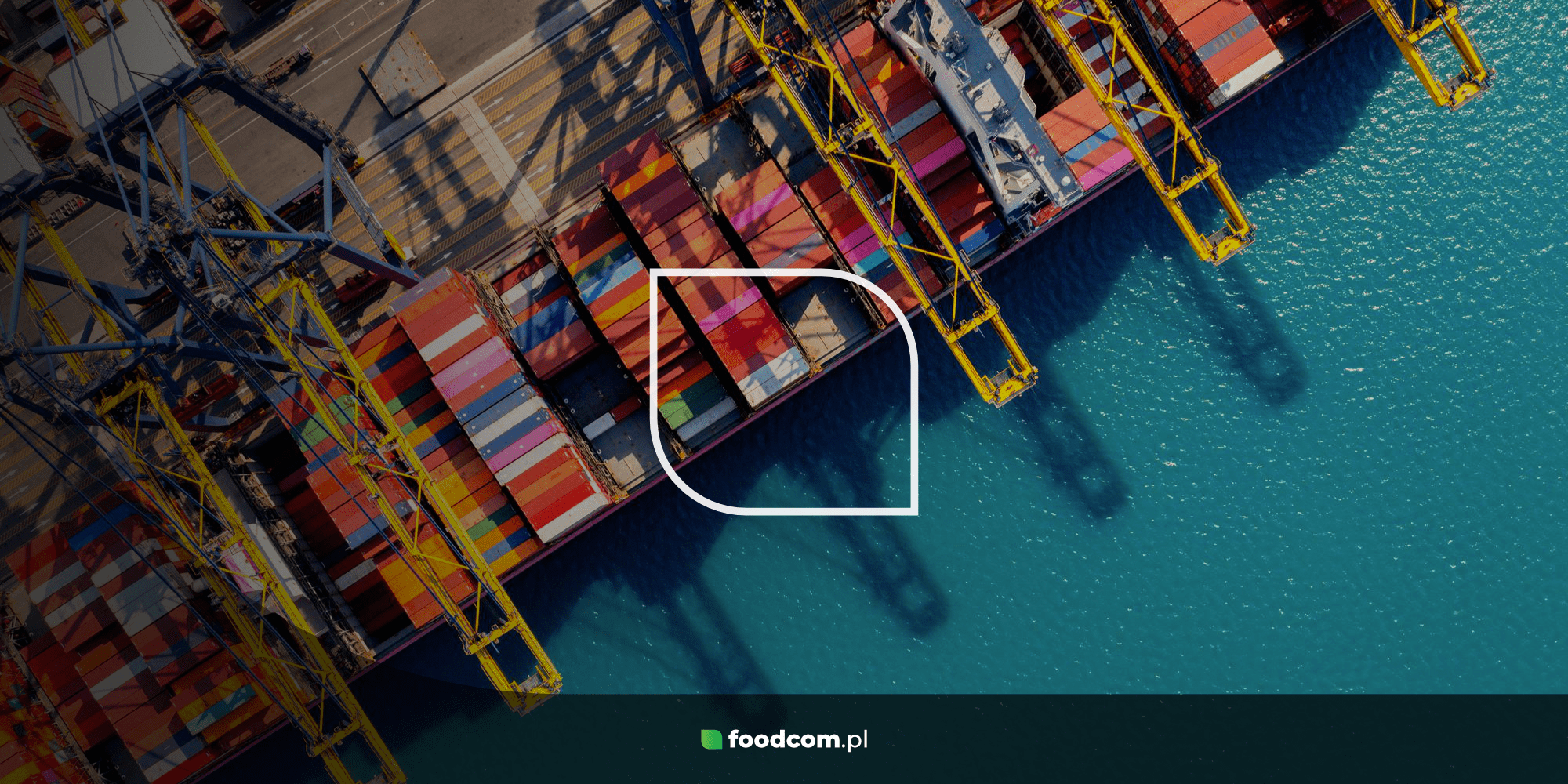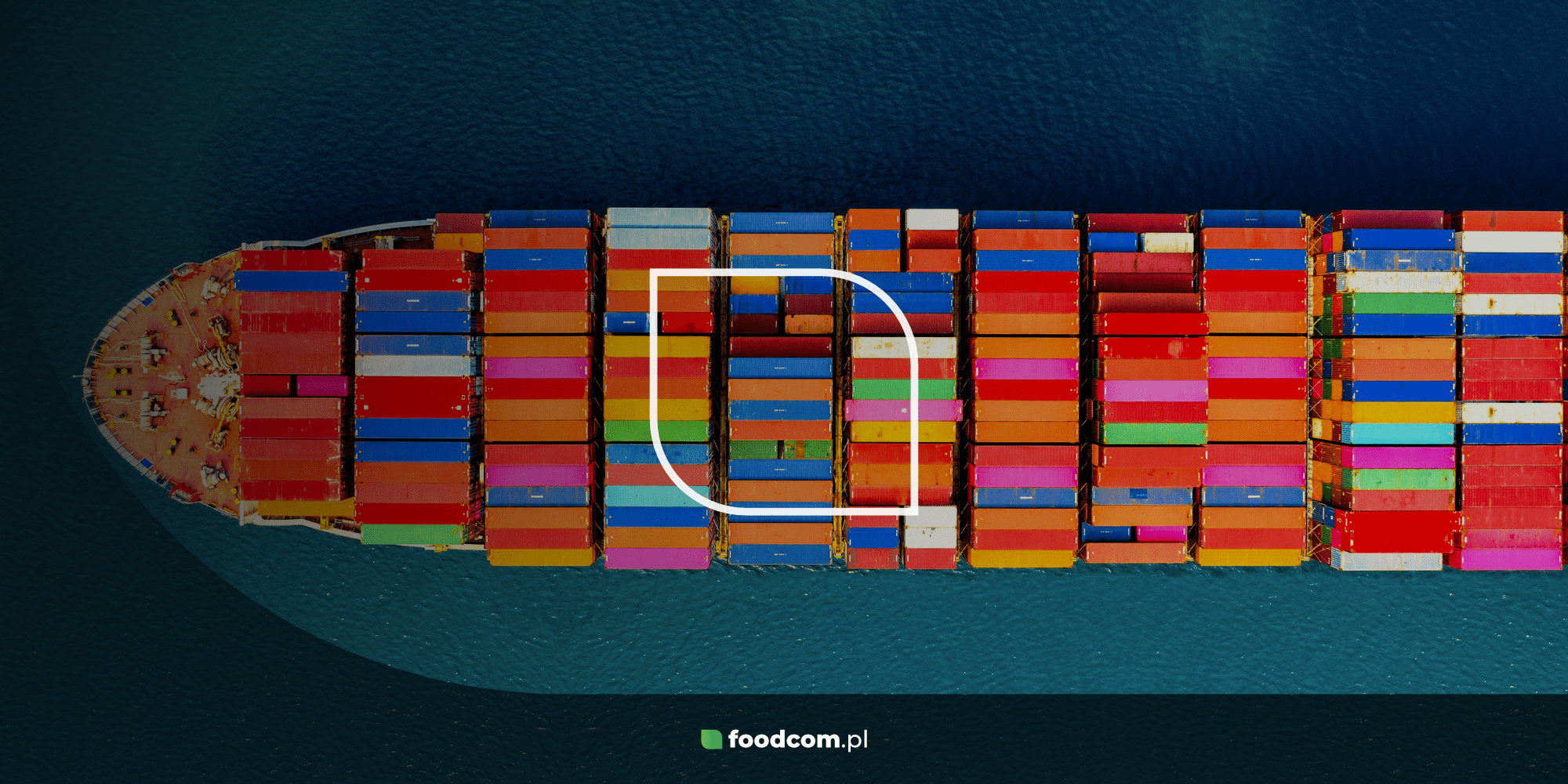- Maritime transportation is responsible for a significant proportion of greenhouse gas emissions, despite its efficiency.
- The food industry faces additional challenges related to cooling and product quality.
- Technological innovations, such as alternative drives or AI, are becoming crucial for reducing emissions.
- New climate regulations increase the pressure for ecological transformations in food logistics.
Maritime transport is the backbone of the modern economy, accounting for around 80% of global trade in goods. In the case of the food industry, its importance is particularly significant – enabling the movement of vast quantities of agricultural products between continents, from cereal grains to fresh tropical fruit. However, with the growing climate crisis, questions are increasingly being raised about the environmental costs of this form of logistics.
Over the past decade, consumer awareness of environmental issues has increased significantly, forcing the food industry to review its existing practices. In this article, we take a detailed look at how shipping affects climate change, what specific challenges this generates for food producers and what solutions can help reduce the negative environmental impact.
Environmental consequences of maritime food transport
Although maritime transport is considered to be more energy efficient its scale means that it remains a significant source of pollution. According to the International Maritime Organisation, maritime transport accounts for approximately 2.5% of global greenhouse gas emissions. Worryingly, unless radical action is taken, this share could rise to as much as 17% by 2050.
The use of heavy marine fuels (HFOs) remains a major concern. These are characterised by high emissions not only of CO2, but also of harmful sulphur and nitrogen oxides. An additional challenge is the age of the commercial fleet. Many vessels remaining in service are technologically obsolete. The practice of deliberately reducing speed to reduce fuel consumption, while beneficial for reducing emissions, creates new problems for the food industry. It increases transport times for products with a short shelf life.
Specific challenges for the food sector
The food industry faces particularly complex challenges in the context of maritime transport. On the one hand, the globalisation of markets is forcing the need to transport huge volumes of products over long distances, while on the other hand, growing consumer awareness of the carbon footprint is forcing producers to seek more sustainable solutions.
The issue of the cold chain remains a key concern. Transporting temperature-controlled products (meat, fish, fruit or frozen food) involves significant additional energy consumption. It is estimated that refrigeration alone can increase total transport-related greenhouse gas emissions by up to 30-40%. Furthermore, extended delivery times resulting from optimisation for emissions reduction (e.g. through slow steaming) can negatively impact product quality and freshness, creating additional logistical challenges.
Innovative solutions in practice
In response to these challenges, the industry is starting to implement a number of innovative solutions. In the area of propulsion, we are seeing a gradual shift away from traditional fuels towards alternative energy sources. An example is the Danish company Maersk. In 2023, it launched the world’s first container ship powered by methanol derived from biomass. This vessel reduces CO2 emissions by around 70% compared to conventional ships.
In parallel, technology is being developed to use liquefied natural gas as a transition fuel. There is also intensive research into hydrogen and ammonia as potential zero-emission solutions of the future. In the area of logistics optimisation, advanced AI systems are becoming more widely used. They allow precise route planning that takes into account weather conditions, currents and other factors affecting fuel consumption.
Regulation and its impact on the future of the industry
The role of regulation in shaping the future of shipping cannot be overlooked. The IMO’s 2020 restrictions on the sulphur content of marine fuels (known as IMO 2020) are only the beginning of change. From 2024, maritime transport is to be included in the EU Emissions Trading Scheme (EU ETS), which will significantly increase costs for carriers using conventional fuels.
These regulatory changes will have a direct impact on the food industry, likely leading to increased transport costs. At the same time, however, they create a strong incentive to invest in more sustainable solutions. Companies that adapt their supply chains more quickly to the new requirements can gain a significant competitive advantage in an increasingly environmentally conscious market.
Maritime transport remains an indispensable part of the global food supply system, but its current operating model requires profound changes. The food industry faces the daunting task of reconciling the need to maintain cost efficiency with increasing sustainability requirements.
Further development of alternative propulsion technologies, investments in fleet modernisation and optimisation of logistics processes seem inevitable. Companies that treat these challenges as a transformational opportunity can not only reduce their negative environmental impact, but also build a sustainable competitive advantage in the era of the low-carbon economy.





![Cheese market review 2026 [Global Report] Cheese market review 2026 [Global Report]](https://foodcom.pl/wp-content/uploads/2024/07/Global-Report-Przeglad-rynku-sera-2024-600x338.jpg)




